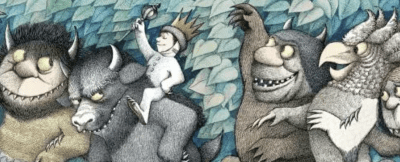Catching up with Big Thief After Their Very Big Year

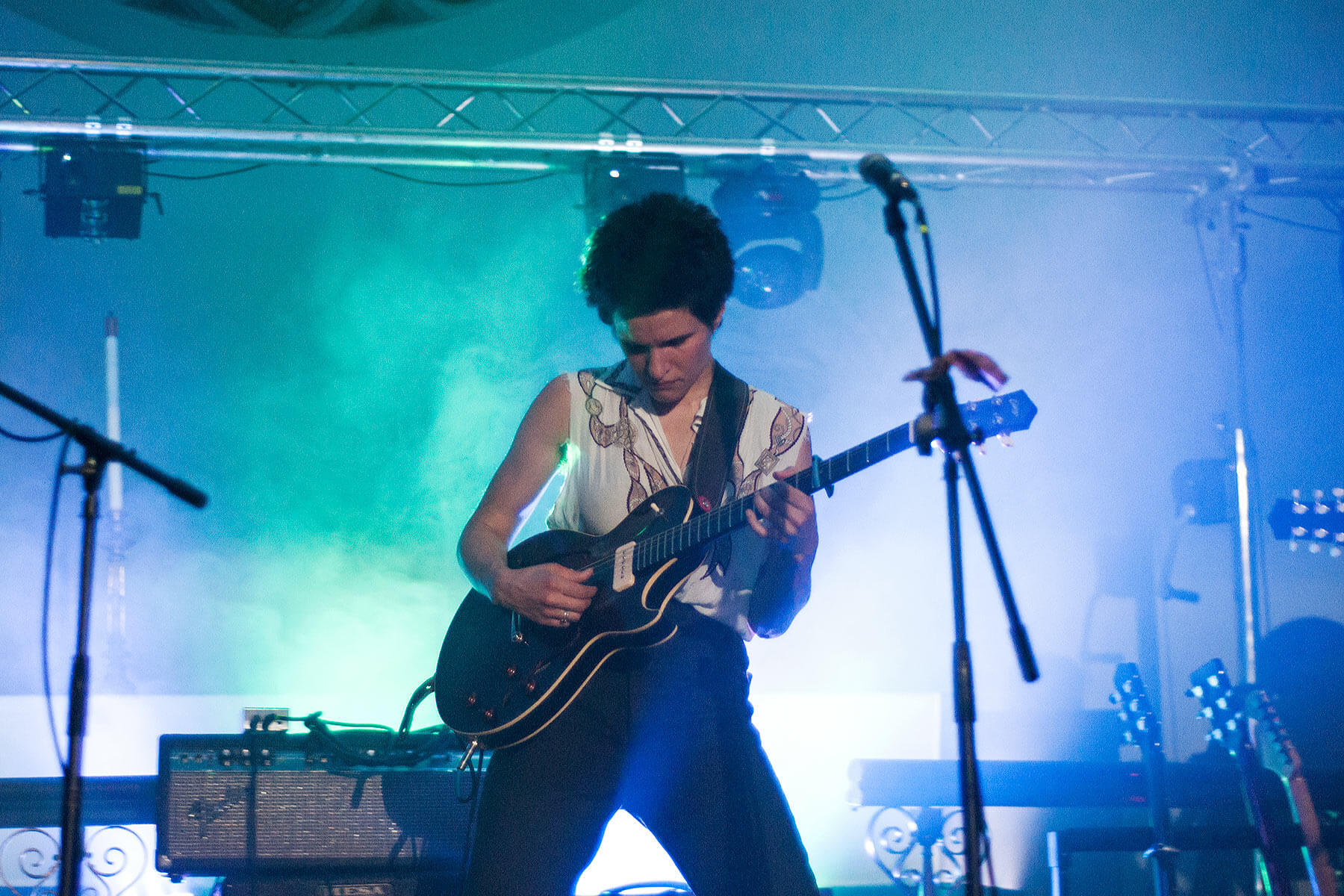
Late last spring, I was standing in line at a coffee shop in Fort Greene when a song caught my attention. The barista told me it came from a band called Big Thief. The song, “Masterpiece”, sounded kind of like Land of Talk, but also a little… bigger—it was more reminiscent of a classic rock ballad with an updated energy. It was instantly familiar, yet also brand new, and I wanted to hear more of it right away. So when I had the opportunity to interview Big Thief a couple of weeks later, I jumped on it.

That June, I met Big Thief’s Adrianne Lenker at a coffee shop in Clinton Hill. We sat outside discussing her four-piece band’s debut album, also called Masterpiece, for a couple of hours as rain pelted the tarp above us and Adrianne sipped a mug of cinnamon flavored coffee. At the time, she was just 25, Big Thief had been signed to Saddle Creek, and they were about to leave on a several-month-long tour that would take them across the country and throughout Europe and Australia.
But before any of that began, Masterpiece was getting a lot of praise. Rolling Stone was waiting for Adrianne on the phone when she and I finished talking. It felt to me—from the outside, anyway—like the calm before the storm. This was a young band on the precipice of indie rock success, or, at least, something bigger (and probably more trying) than they could presently know.
Now a year later, Big Thief has emerged on the other side with their second album, the highly-anticipated Capacity, released on Friday. I had been excited to get my hands on any additional notes from the band ever since I first heard Masterpiece, and since I’d burned through that album so many times that it played in my head even when it wasn’t actually playing out loud. Capacity sounds unmistakably not like a debut, but like an album with more patience, more experience, and the kind of experimentation that comes with confidence and growth. For me, it also includes the band’s original heartbreaking beauty (with songs like “Shark Smile”; put it on now, you won’t take it off for a while) that pulled me in and that has kept me listening for more than a year now.
After a hefty 2016 that included Masterpiece’s worldwide tour, an appearance on Late Night with Seth Meyers, their second full album release, continued praise, and now, after two album release shows at Northside Festival this weekend, I wanted to talk to Adrianne for a State of the Union of the band. We caught up just as Capacity was about to release, and before she and bandmate Buck Meek left for Texas for a couple of weeks, to catch their breath before touring again. As with our first conversation, Adrianne blew me away with her intelligence and insight, while she talked about the importance of self care on the road, the relief of recording music after writing it, how, after a year of traveling and making music together, Big Thief has become stronger as a band, and finally how, regardless of their growing success and what happens from this point on, it’s the music that remains the driving force, and at the center of it all.
*****

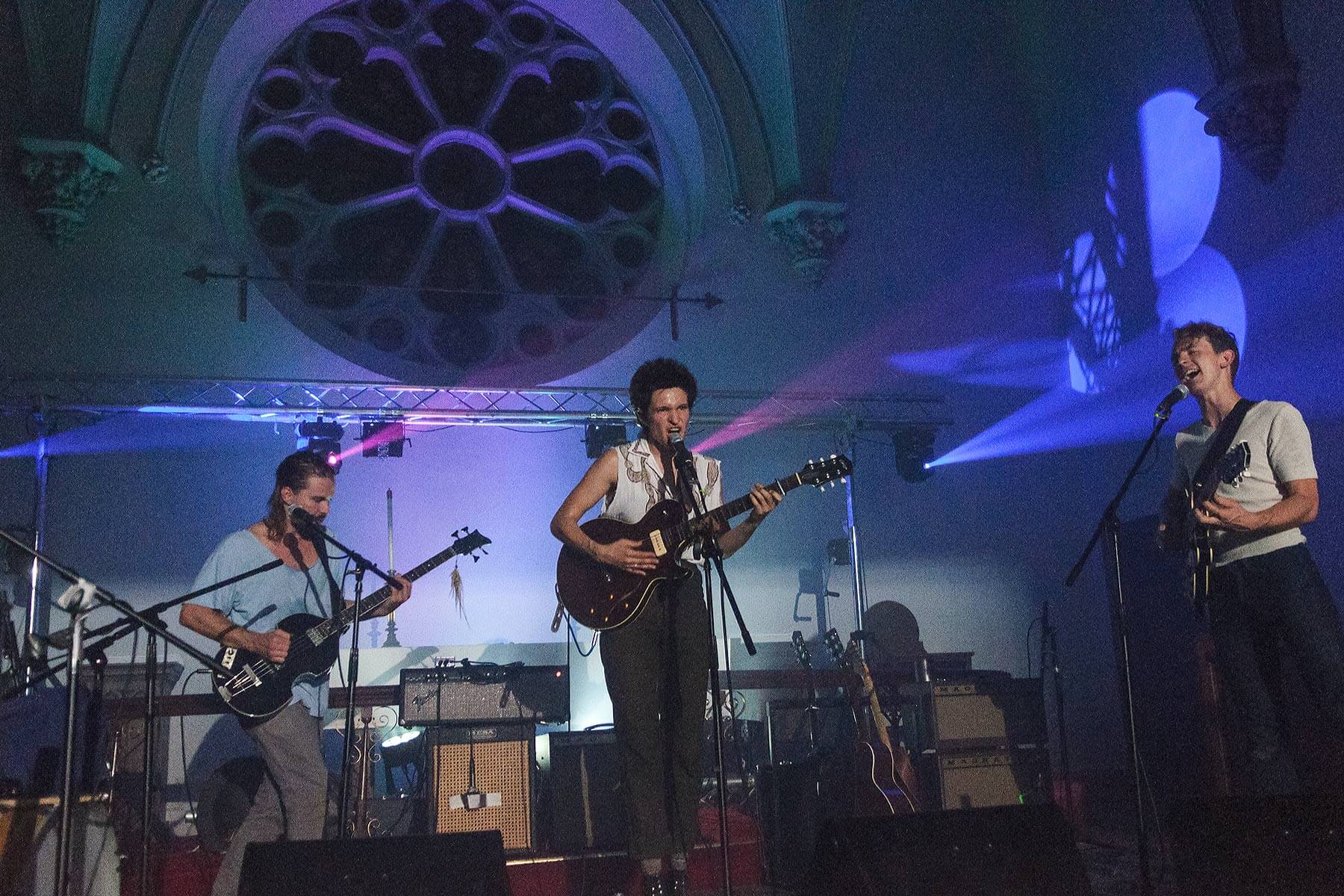
How’s it going today?
I’m good. It’s beautiful, it’s raining.

Where are you talking to me from?
I’m at home in Prospect Heights. There are so many things happening today and Monday with press stuff, because we’re getting ready to release the new record, and we’re going to Texas for two weeks. It’s a scramble before going out on the road from June until mid-December.
It’s been a big year since we last talked. Tell me how you feel differently today compared to then.
I feel like now we are a band, whereas before it felt that we wanted to be a band. And after a year on the road, we are a band. In fact, we are just in the beginning of being a band, and I can feel the potential energy. Because when we made Masterpiece we were really just babies, and gathering all of our resources and doing it all ourselves. And we just wanted to make a record. But then when we made Capacity, that was the next stage of feeling like a band.
How and when did you have time to make it, given how busy you’ve been?
We went in for a month to record [last spring, after Masterpiece], and we were just in Up State New York at Outlier [Inn Recording Studio] for a month. We spent that time cooking and becoming tougher every day and it brought us a lot closer. But it wasn’t really until we hit the road right around that time that we spoke that it really started feeling like we were bonding.
That’s why they call it a band I guess, you become banded together through experience, and it’s a special kind of family. And it reminds me of being in a relationship, a romantic relationship, and the beginning is magical and there are all theses possibilities and ideas about each other, and it’s a dreamy land. And then once that kind of time goes by, it all comes down to the bones of forming a foundation, and the bond, and that takes actual work and actual energy. That’s really what showed me that working with these guys, that these are the right people. Once we started having to deal with various issues on the road, and just whatever challenges we would encounter, and seeing how everyone reacted in the face of those challenges.
Right, and that’s not something that you could know until you go through it.
I would say it’s 90 percent emotional and 10 percent musical. We all play together really well and appreciate each others’ musicality and creativity, and that’s definitely what brought us tighter in the first place. But the emotion of it, the ability to communicate our abilities, and to accept and understand each other, it mainly comes down to communication and there is a lot of patience required. And that’s kind of what we’ve been learning. That’s the part they don’t talk to you about if you go to music school.


I talked to Elizabeth Powell from Land of Talk recently, and she mentioned that self care is the most important part of being able to make and perform her music—but that is also easier said than done. How do you do it?
I’m just learning. I honestly don’t know how yet. Part of it is that when you’re actually traveling through space ever day, just that alone, just us being on the highway, it’s almost like something happens to your cells. It’s like a quality of all these different levels of passing through: passing through cities, and spaces in the van, and passing from one town to the next, and passing through different cultures, and then different time zones even, and that’s like the physicality of it. Then there is the mental and emotional aspect of travel, and of passing through people’s energies. We travel through the venues, but most people who are gathering there are grounded, and in a place where they’re relatively still, and we always have this sense that we’re moving

So it’s interesting, because I want to feel the energetic pull of wanting to meet people in the venue during the show, but I feel like I’m moving still—from our journey of arriving there, and also already leaving. I think it’s cool, it’s a challenge, it’s a practice of being present. But I feel like it would require a lot of centering and meditation and discipline and practice to get to the point where I could be completely grounded and still and rooted and present within ourselves in the space, and with each other.
How do you try to combat that feeling of being pulled?
I think that’s the root of why it’s difficult to learn to take care of oneself. It’s different for every person. For me it’s just the basic foundation of rest, and a period of sleep, where it’s regular sleep, and the other thing is food. I’m very affected by what I eat, and cooking at home is definitely the most grounding thing. I always feel really good with periods of time where I’m making my own meals. And that’s just not something you can do on the road. Once in a while we’ll be at an Airbnb or eating out, but it’s basically ten home cooked meals in three months. Sleeping and eating are to me the basic things I need to feel really at peace and centered. I go to grocery stores as often as possible and get raw vegetables and ferment anything that will last, that is vibrant, that has some level of vibrancy, that is alive. There are things we’ve started doing that sooth our senses, our sense of smell for instance. The more you can control about your environment, the better it feels. We just like being surrounded by as many plants and nurturing things as possible.
I hadn’t realized previously that you completed Capacity in the spring of 2016.
We had an opportunity to record for an entire month. And by that time Saddle Creek had come together, and so we let them know we had plans to do this, and had other songs we wanted to record. And we had an opportunity to be at this studio for an entire month, because it would otherwise cost way more than we could afford. But our buddy was going out of town and he just wanted us to look after the place. Normally we’d be able to stay there for five days or a week. So there were a lot of reasons why that opportunity came then. It was a time sensitive thing.
“I guess recording is such a relieving process, because then I no longer have to carry those things around in my head.”

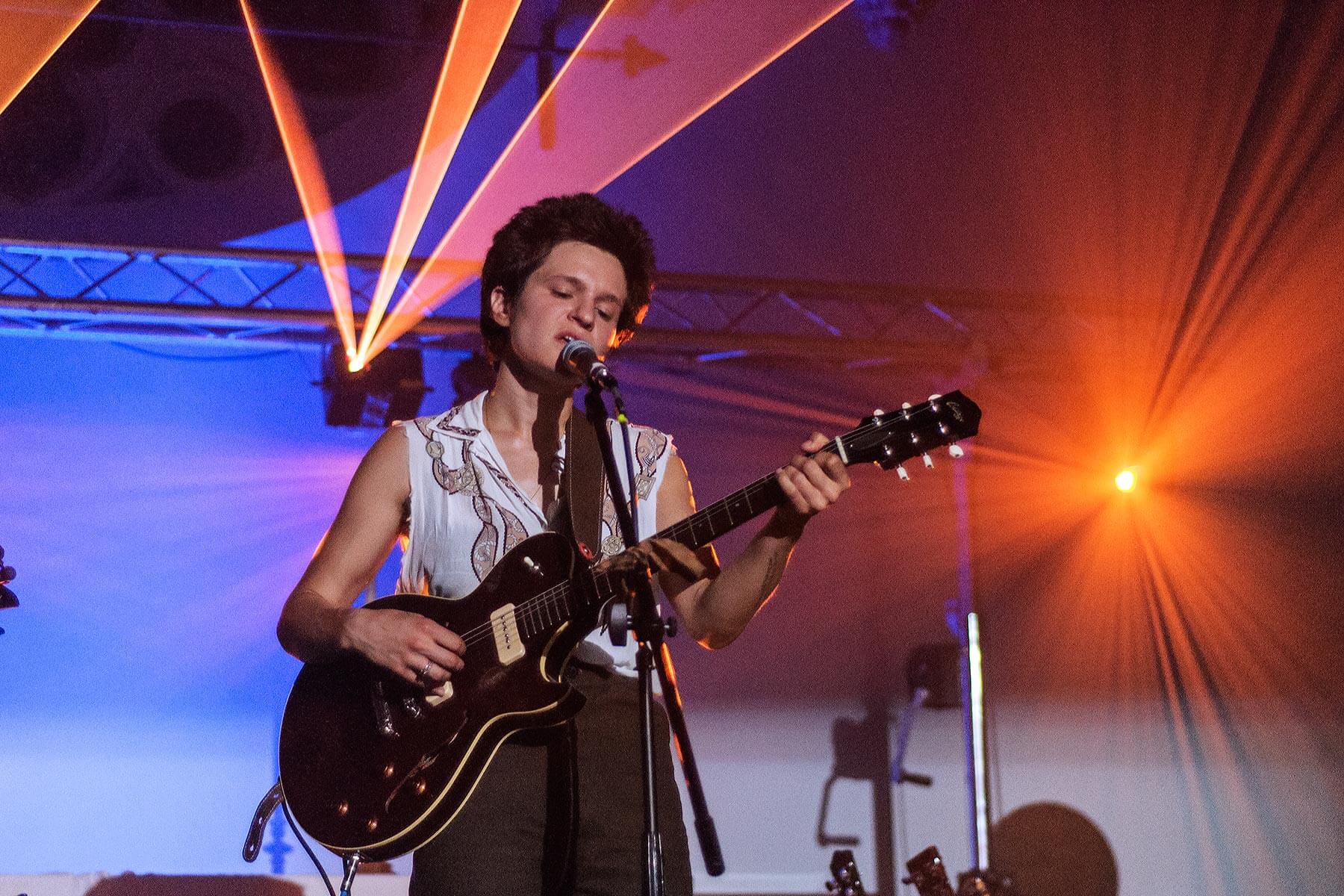
Was it all written when you arrived?
I wrote a couple songs while we were there. And I think “Capacity” itself I wrote after the fact, and we ended up recording it after we went to a few more studios. We revised a couple songs and we did a 7 inch with “Mythology Beauty” on one side and “Breathe in My Lungs” on the other. And we had the intention of it being part of the record, but then it didn’t make it. There were a few songs like that.

How did you feel once it was complete?
Recording is a relieving process, like shedding a skin and understanding more about yourself. I guess recording is such a relieving process, because then I no longer have to carry those things around in my head. After Masterpiece I felt like I shed a skin—getting “Real Love” and “Randy” and some of those songs that were feeling [heavy], it felt kind of just like this release of energy, of so many things. And making that record helped me understand more about myself. I gained a bit of a wider perspective and could start developing this relationship.
I’m surprised to hear that so little time passed between your recording of Masterpiece and Capacity. To me, the evolution of the sound made it seem like a much bigger gap in time.
I feel like time is cyclical and extra-dimensional and not linear. I’ve been feeling a strange sense of time. A world of things can happen going to a summer camp when you’re a kid, compared to when you’re going about your regular school year. It’s like that, I think, with writing. And any kind of growth at all. Sometimes growth can come in these spurts. There can be trees that are bare and bony and then within two days suddenly there is this foliage, with big giant flowers, and green, and it’s like: whoa, how’d that happen! That is how I felt making the record.
So despite a relative lack of time, there were leaps and bounds that you experienced personally.
Creativity and inspiration are so intangible, and I can’t really say or know where they come from. But when we’re in a space where we can experience a clear flood of creativity or inspiration, then that’s like, yeah, time and calculated things and reason kind of evaporate. It doesn’t feel like a little or a lot of time passed, it just feels like it was something big, like blobs of paint were coming out. And it’s still a question and a quest—and like a curiosity. In fact, that’s where creativity blooms out of: curiosity.
“I like the spirit of a question more than the spirit of giving an answer. To be in a state where you’re questioning is so beautiful, because you’re longing, or you have to be open in a way to receive something, rather than just projecting something.”

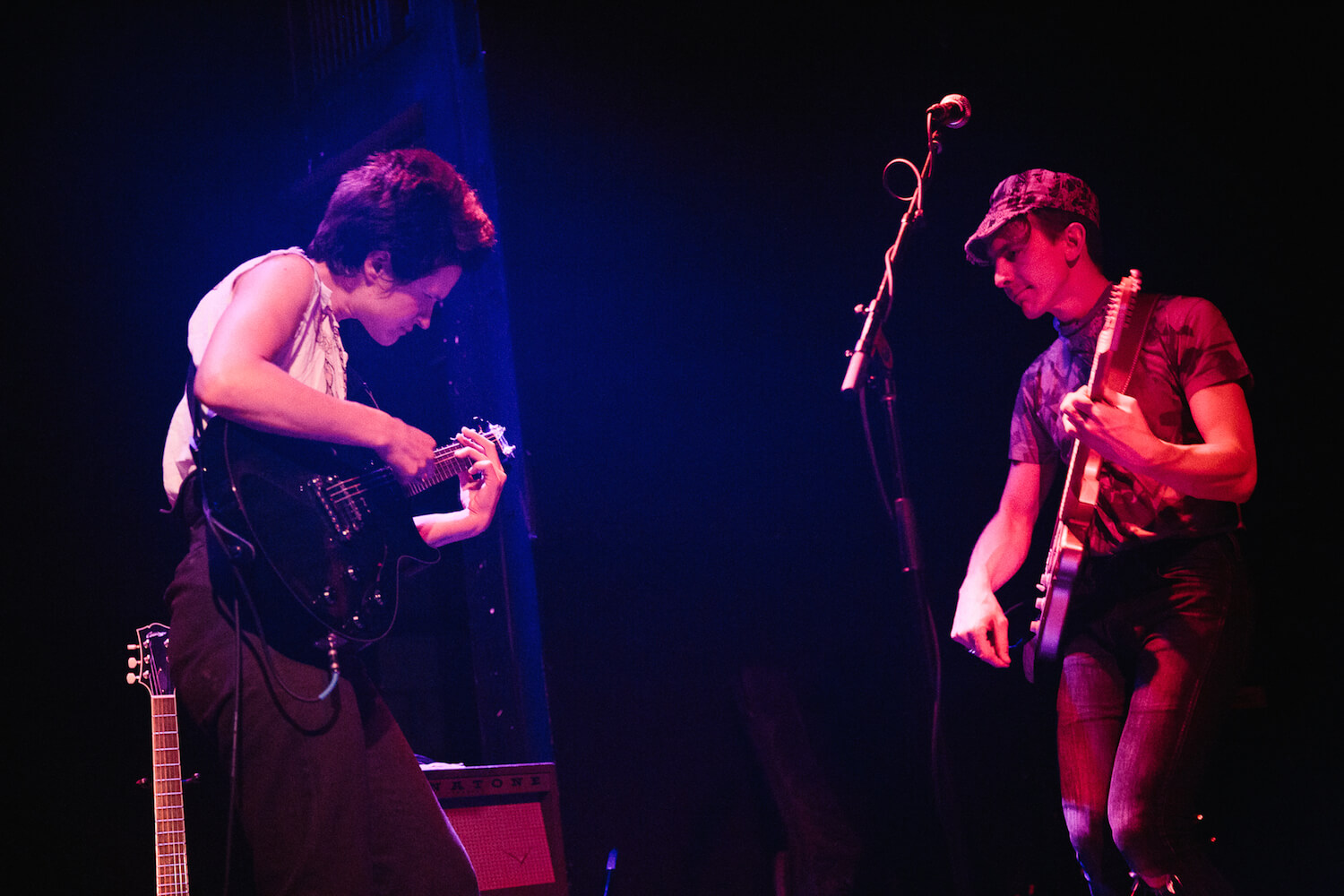
It’s what I’ve always heard journalists and writers say, too: The best writers are genuinely curious people.
Everything we make is a question, and we keep learning more intricate ways of asking them. You know how when you’re having a really interesting conversation, you just learn about more questions you want to ask. You’ll start at a certain layer, and then the next question and next layer, and there are more intricate questions, and they become more specific, and you start to learn the language of how to ask that question.

I think that [also accounts for] the sparsity of the music we make: there are all these questions, it’s not like it’s a manifesto. I like the spirit of a question more than the spirit of giving an answer. To be in a state where you’re questioning is so beautiful, because you’re longing, or you have to be open in a way to receive something, rather than just projecting something. And that means we’re constantly opening up to receive rather than just to put our projections on people. That’s what I want for the songs, too: space and room for other people to inhabit the spaces of the songs.
I loved the song “Mythological Beauty” with its two Minnesota references, and not just because I’m also from Minnesota, but because, as you mentioned, these lyrics and references are so specific and cultivated—Nisswa, MN, and rhubarb. I remember eating rhubarb dipped in sugar, straight from my Grandma’s garden during the summers. What does that song mean for you?
I did that with rhubarb and sugar, yeah! We had a house that we were renting—it’s pretty literally a rented house in Nisswa, Minnesota. And there was shrapnel and oil cans and all this debris, and we moved in the winter, and when the snow melted the yard was incredibly full of stuff that would take a month to clean up. It was all this shrapnel and pieces of metal. And where we lived was so beautiful. We lived next to a field of strawberries and woods, and it was just really far out in the country, and the next closest house was a mile away.
But also there was a bitterness and sweetness represented symbolically in that land: the softness of that strawberry field and the forest, but then the harshness of that junky warehouse that had been left here. And I injured my head building this ladder out of these pieces of metal and debris, and I climbed up this tree and got down out of there, and some of the metal fell down. I was five or six years old, and it hit my head and fractured my skull. And like the song says, my mom was 27, and she had three kids by that point. And yeah, there was rhubarb and we had neighbors and we would drive around the field in the back of the pick up truck, and I just remember eating rhubarb with sugar and having fires.

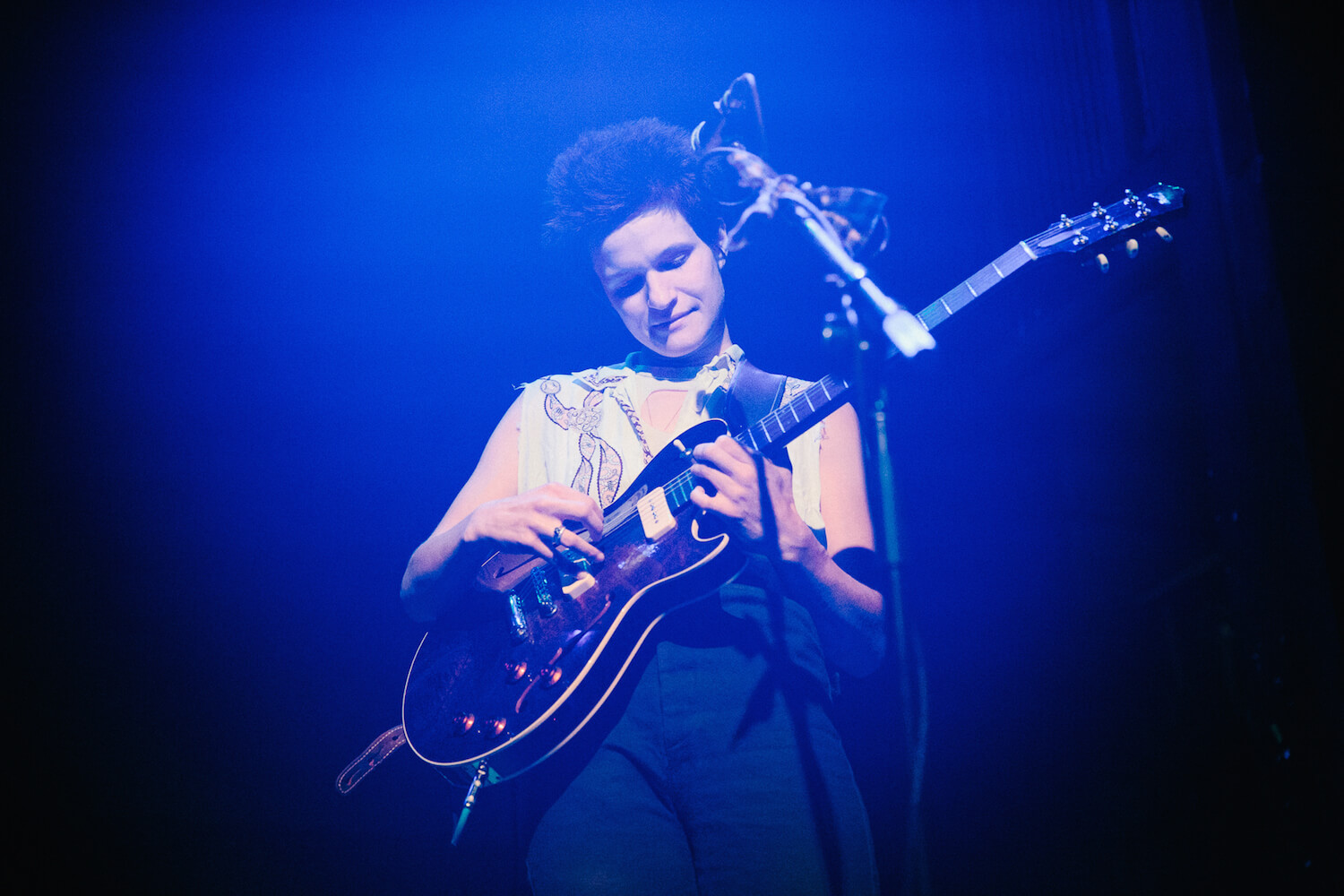
How often do you get to see your family, now that you’re so often on the road?
I see them as often as possible. The last time I was home, it’s always in the winter. But also my sister lives in Massachusetts, and I’ve been to Western Massachusetts to visit her the last three weekends. I take the bus out there, and there are 100 acres of forest. She is making art out there and lives in a cabin with a wood stove. And so I actually was with my brother and sister. They’re both younger. I do make a point to see them, I’m really close with my siblings. And sometimes my dad visits. Both of my parents are very happy [about my music].

Was playing Late Night with Seth Meyers kind of a surreal thing, after growing up watching shows like that on TV?
No, but it was interesting. There were real TV makeup artists and all. It was really fun actually. We went on the set of Saturday Night Live because it was right there. We sat on the stage where Neil Young played, and watched videos for inspiration, and it was cool to be there. I felt like I should be more like, ‘Oh my gosh!’ but I just didn’t really think about it too much. I felt like, ‘OK, this is another show. Just gotta play.’ And the weirdest part is the cameras and stuff, but I don’t know, I’m trying to maintain my groundedness as I’m doing that. I’ve been focusing on sort of minting a centeredness, and neutrality, because staying really present is what’s actually at the core of this. It’s easy to get tripped out on TV and millions of people will see this now, and we’ll get more famous. It’s really weird to think about that, and then not think about that and treat it as another show. I hope to be able to do that with any level of success or failure.
Right, because regardless of any level of exposure, you’ve gotta keep making music.
If no one likes Capacity, I don’t want to feel like I’m less valuable. I just want to keep focusing and keep making music, because whether we play on Saturday Night Live or wherever, or if we just have to revert back to booking all our own shows, and playing in a house, I’m fine with it either way. It’s OK because music is such a gift. I feel lucky. I feel like the payment and the reward is in the music. It’s a collaboration and and exchange. And as long as I can keep doing that in some form, I’m happy. With any amount of success or failure, I hope to just keep my center and focus on the work, and on the music.


Images by Joe Sábado at Greenpoint Co-op Church, and Carly Hoskins at Rough Trade in Williamsburg for Northside Festival.

You might also like 














